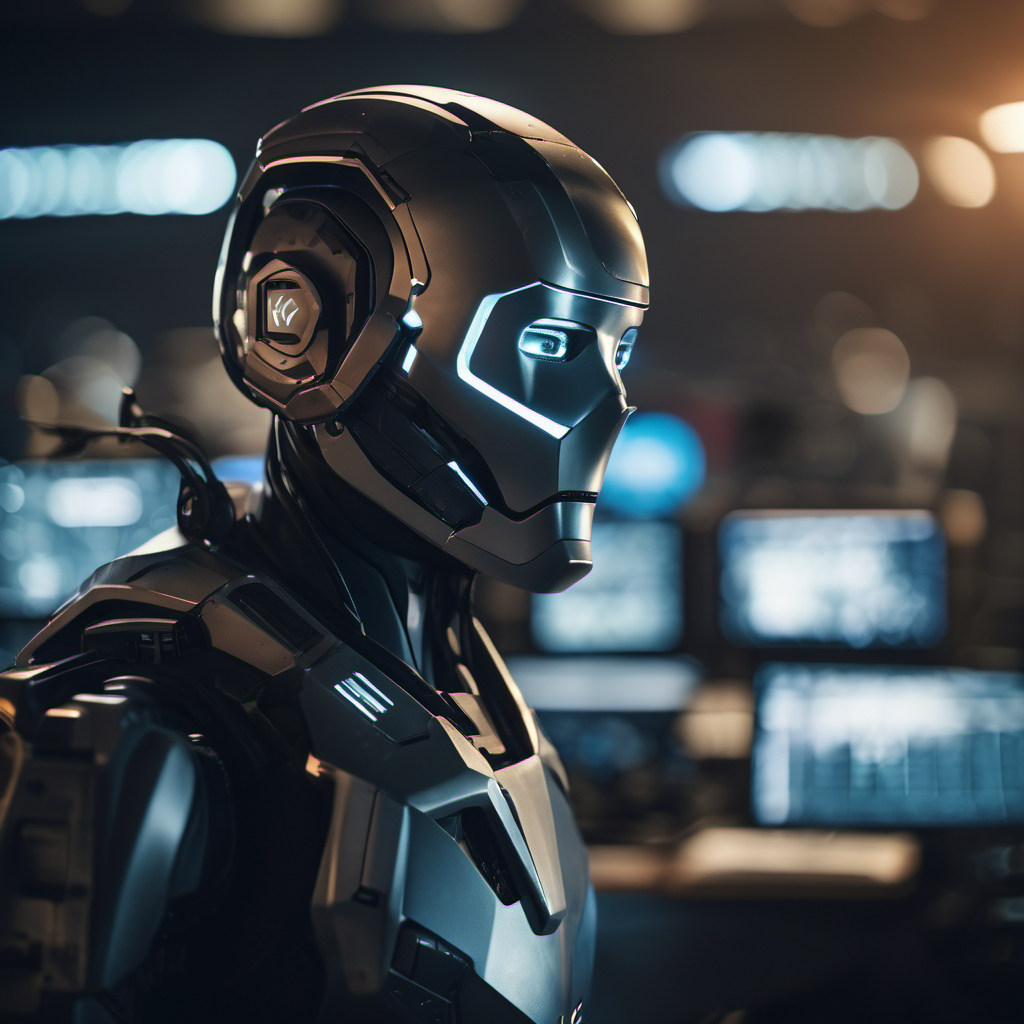AI and the Future of Cyberwarfare
Introduction to AI and Cyberwarfare
In the digital age, where technology rapidly evolves, the landscape of warfare has shifted into the cyber realm. With the emergence of Artificial Intelligence (AI), the dynamics of cyberwarfare have been revolutionized. AI’s integration into cybersecurity raises both opportunities and challenges, reshaping the way nations defend against and perpetrate cyber-attacks.

The Role of AI in Cybersecurity
AI plays a pivotal role in fortifying cybersecurity defenses. Its ability to analyze vast amounts of data in real-time enables proactive threat detection and mitigation. Through machine learning algorithms, AI systems can identify patterns indicative of potential cyber threats, allowing organizations to respond swiftly and effectively.
AI-Powered Cyber Attacks

However, AI’s potential is not limited to defense; it also poses a significant threat when wielded by malicious actors. AI-driven cyber-attacks leverage machine learning algorithms to exploit vulnerabilities and orchestrate sophisticated breaches. Such attacks are capable of adapting to evolving security measures, making them challenging to detect and counter.
Examples of AI-driven Attacks
- Adversarial Machine Learning: Attackers manipulate AI models by introducing subtle perturbations, causing misclassification of data.
- Automated Phishing Campaigns: AI algorithms generate personalized phishing emails, increasing the likelihood of successful social engineering attacks.
- Autonomous Malware: Self-learning malware adapts its behavior to bypass traditional defense mechanisms, wreaking havoc on targeted systems.

AI in Cyber Defense
To combat AI-driven threats, organizations are increasingly leveraging AI-powered defense mechanisms. These systems employ advanced analytics and anomaly detection algorithms to preemptively identify and neutralize potential threats. Additionally, AI enhances incident response capabilities by automating remediation processes and reducing response times.
Ethical Considerations in AI-Powered Cyberwarfare
Despite its efficacy, the deployment of AI in cyberwarfare raises ethical concerns. The autonomous nature of AI systems blurs the lines between permissible and prohibited actions in warfare. Questions regarding accountability, transparency, and the potential for unintended consequences underscore the importance of ethical frameworks governing AI development and deployment.

The Future of AI in Cybersecurity
As technology continues to evolve, the future of AI in cybersecurity holds promise and uncertainty. Advancements in AI algorithms and computing power will likely lead to more sophisticated cyber threats and defenses. Additionally, the proliferation of AI-powered tools and platforms may democratize cyber warfare, amplifying the capabilities of both state and non-state actors.
Conclusion
In conclusion, AI’s integration into cyber warfare represents a double-edged sword, offering unprecedented capabilities for both offense and defense. As nations navigate the complexities of the digital battlefield, the ethical and strategic implications of AI-powered cyber warfare must be carefully considered to ensure a secure and stable cyberspace for all.
FAQs
- How is AI used in cyber warfare? AI is utilized in cyber warfare for both offensive and defensive purposes. It powers automated attacks, facilitates threat detection, and enhances incident response capabilities.
- What are the ethical concerns associated with AI-powered cyber warfare? Ethical concerns in AI-powered cyber warfare revolve around accountability, transparency, and the potential for unintended consequences. Questions regarding the legality and morality of autonomous cyber weapons are particularly salient.
- What measures can organizations take to defend against AI-driven cyber attacks? Organizations can implement AI-powered defense mechanisms such as advanced analytics, anomaly detection, and automated incident response systems. Additionally, investing in cybersecurity training and awareness programs can help mitigate the risk of successful attacks.
- How does AI contribute to the sophistication of cyber threats? AI enables attackers to orchestrate highly targeted and adaptive cyber attacks by leveraging machine learning algorithms. This capability allows attackers to evade traditional security measures and exploit vulnerabilities with greater efficiency.
- What does the future hold for AI in cybersecurity? The future of AI in cybersecurity is characterized by continued innovation and evolution. Advancements in AI algorithms and computing power will likely lead to more sophisticated cyber threats and defenses, shaping the landscape of cyber warfare for years to come.


2 thoughts on “AI and the Future of Cyberwarfare”